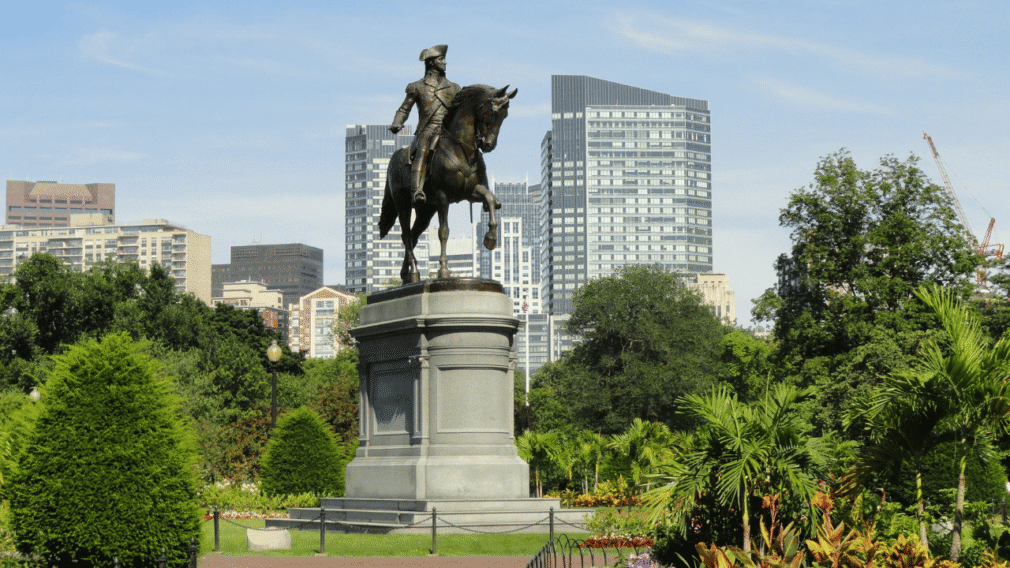DraftKings and Encore Clash in High-Stakes Battle Over Massachusetts Online Casinos
A major political battle is unfolding on Beacon Hill as lawmakers consider legalizing online casinos in Massachusetts. The proposal has pitted online giants like DraftKings against the state’s largest land-based casino, Encore Boston Harbor, according to the recent The Boston Globe publication.

Legislation Moves at Surprising Speed
Two bills, House Bill 332 and Senate Bill 235, are moving through the legislative process much faster than previous gambling expansions. While brick-and-mortar casinos took years to approve in 2011, and sports betting passed in 2022 after a long debate, iGaming seems to be on a quicker path. The bills have already had a key committee hearing.
State Senator Paul Feeney, a sponsor of the legislation, noted the “renewed interest in looking at how we can maximize tax revenue without broad-based tax increases on residents.”
This push for new revenue streams is driving the conversation forward, but Feeney acknowledged that nothing is on a “fast track” and lawmakers must weigh all costs and benefits carefully.
The Push for Regulation and Revenue
Supporters, including DraftKings, FanDuel, and MGM Resorts, argue that legalization is a matter of practical economics. They point to an existing illegal online casino market estimated to be worth $338 billion annually.
By regulating and taxing this activity, Massachusetts could capture significant revenue, much like it did with sports betting, which has generated over $300 million in taxes since early 2023.
Projections estimate that online casinos could bring in $230 million to $275 million annually for the state with a 20% tax rate. David Prestwood of DraftKings said, “This money may be especially critical for Massachusetts in the face of anticipated federal funding cuts.”
Gambling expert Lia Nower from Rutgers University bluntly called iGaming the “cash cow for the industry,” highlighting the massive financial potential.
Fears of Cannibalization and Job Losses
The opposition is led by Encore Boston Harbor and the influential hotel workers union, UNITE HERE Local 26. They fear that online casinos will cannibalize their business, leading to significant job losses.
An industry-funded study projected that Massachusetts casinos could lose 862 gaming jobs and another 2,786 support positions.
Encore Boston Harbor’s president, Jenny Holaday, warned that legalizing iGaming could result in a “dramatic reduction in the associated taxes that Encore pays to the Commonwealth.” These tax payments have totaled nearly $1 billion since the casino opened in 2019, a powerful counterargument to the proponents’ revenue promises.
Problem Gambling and Lottery Concerns
Beyond the economic fight, critics raise serious concerns about the social impact. They argue that online gambling removes the “friction points” of a physical casino, where players have time to reconsider their bets. Mark Stewart of the National Association Against iGaming noted that with iGaming, “It’s just nonstop, constant action and 24/7 access.”
Lia Nower also warned about the increased risk of problem gambling. “The more things that you gamble on, the more often you gamble and the more venues in which you gamble, the higher your risk,” she said.
State Treasurer Deb Goldberg has also expressed concern that online casinos could hurt the state lottery, which provided nearly $1.2 billion for local aid in fiscal year 2024. “Every dollar spent on private platforms could mean less for our cities and towns,” she stated.
A Call for Independent Analysis
House Speaker Ron Mariano, a key figure in the sports betting legalization, has said he is not yet familiar with the details and has not taken a position. The Boston Globe suggests the state should conduct its own independent analysis to assess the true impact on existing casinos, the lottery, and public health.
The core issue remains balancing potential new tax revenue against the risks to established businesses and the welfare of state residents. The outcome will determine whether Massachusetts residents can soon play slots and poker on their phones and what that means for the state’s entire gambling ecosystem.
Recommended
